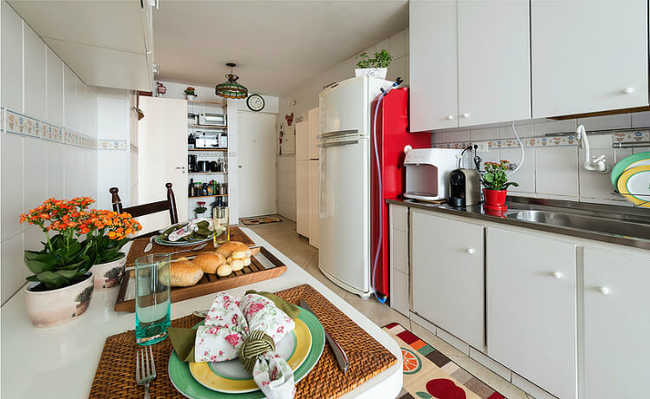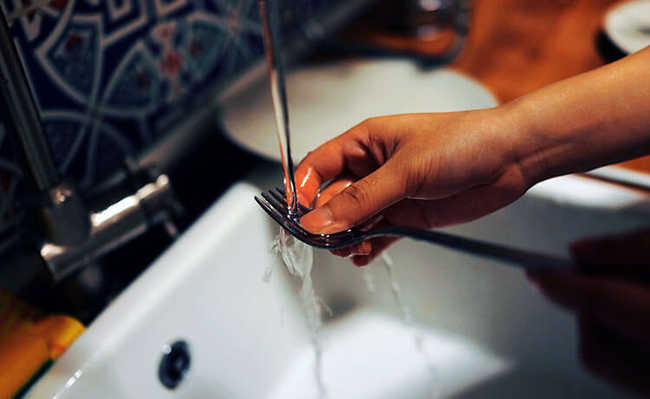Seven tips to make better use of your time
Do you think you need more focus to make the most of your time? Maybe these tips will help!

Icons8_team image by Pixabay
Your day only has 24 hours and it's no use trying, you won't be able to gain extra minutes (the day when daylight saving time ends doesn't count!), but there's no reason to panic either. Although everyone's life is busy, there are a few ways to make the most of your time. Check out these tips on how to make better use of your time, which can help you a lot:
1. Slow down
"Huh? Slow down? But I need to do a lot of things." This is not an intuitive way of looking at time, but looking at things and situations while being at a more relaxed pace helps you think about what is most important to you.
Imagine that you are driving your car on a road surrounded by a beautiful forest. Your stereo is playing the hit from last summer while you're talking to a friend in the passenger seat and, before you know it... You've covered the entire forest and haven't even noticed the beauty of the landscape. It's like you haven't even been there.
Now imagine that instead of driving a noisy car, you are walking through this same forest. Summer is slowly turning to autumn, the temperature is mild and you can see the rich diversity of colors and scents as you fill your lungs with air.
Your walk becomes ten times more important just because you slowed down. Doing things at a lighter pace often makes it possible to notice the things around you, so you can think about how to spend your time better, whether it's walking in the forest, having fun with someone you love, playing an instrument or even working on a report for work.
2. Structure your free time
According to researcher Mihaly Csikszentmihalyi, in his book “Flow”, Sunday lunchtime is the "sadest time in America". That's because this is the time when people are least productive each week in the United States. According to the survey, people are strangely more focused and motivated at work because the structure of the environment provides these sensations. It is based on this that the researcher recommends structuring free time. "Hey, but free time doesn't have to be free"?
Csikszentmihalyi argues that when we don't structure our time, we end up spending it on unimportant activities or thinking about things without much focus or care. Structuring your time, even when it's free, can make you more motivated, focused, and even happy, as it gives you direction and purpose, allowing you to make better use of your time.
For the author, when you have a purpose behind your actions, you feel more productive and happier (even if your purpose is to do nothing for an hour or two).
3. Keep a "time diary" to see what you're doing wrong
Organizing a "time diary" makes you see exactly how you spend your hours throughout the day, and it can be an efficient way to figure out a better way to use your time - there are mobile apps that make this task easier. Keeping a diary of this type, in which you write down what you do at each hour of the day, gives you some advantages, such as:
- Allows you to observe your patterns and trends as you spend your time;
- Makes you see which activities impact your productivity most deeply (eg how a good night's sleep affects your motivation the next day);
- It makes you possibly unravel the real reason you want to spend your time on unimportant things;
- Allows you to see if your priorities are really being priorities (eg, considers family important, but spends all night watching TV).
When you keep a time diary, it's much easier to change habits; and that's because you see, in front of you, exactly what changes you need to make to alter the way you spend time. It seems like a simple and superficial task, but it can produce profound results.
4. Do less things
When you do fewer things (and one thing at a time), you divide your time less, and then you have a lot more of yourself to give to your projects. So one of the best ways to spend your time better is simple: do fewer things.
Ask yourself if you are doing too much. Doing less is not the intuitive way to use your time better, but you do get an improvement in focus because you can invest a lot of your time in yourself and the things you want to do.
5. Think about what matters most to you
People spend time differently: one individual may spend a lot of time trying to develop a successful career, while another may find it more important to build a family life.
Take time to think about what's really important to you. And then invest your time in it! It sounds like simple advice, but believe me, few people take it any further. The rush of everyday life makes people even thought about the routine. But if you don't know what it is that really matters to you, how do you spend time on what really matters?
6. Focus on important activities
Some activities in your day can be light and relaxed, but they don't give you much return. Think about the habit of watching television, for example. If you watch three hours of TV a day, and if you live to be 80 years old, you will spend ten years of your life watching TV! You could have invested that time in other activities that are more beneficial to your happiness and your goals.
Yes, there are exceptions as there are great television shows and often we just want to get home and watch a little TV to relax. The only tip is to avoid this exaggeration that often pulls us into the couch's black hole. Try to make time for important activities that will give you some kind of feedback.
7. Know the amount of time you have - and live up to it
According to data from American Time Use Survey, in each working day a US citizen spends 7.6 hours sleeping, 8.8 hours working, 1.1 hours eating, and 1.1 hours doing chores around the house. What remains? About five and a half hours to do what you want to do. This calculation, however, does not include commuting to work, time spent in relationships and caring for children and parents.
If you know you don't have a lot of time, chances are you'll say "no" to appointments that aren't that important or that keep you from doing more important things. Thus, you will defend your free time to make the best use of it.
Of course, these are just tips so you don't waste time in the worst way, but you also don't need to take it all so seriously that you're stressed out and obsessed with not wasting time. Use the tips sparingly.
Life Hack article-based list










